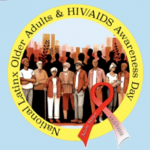All-cause mortality has dropped among people with HIV in high-income countries over the past three decades, and the causes of death have been shifting, but not all groups have benefited equally.
One recent analysis looked at mortality trends among more than 189,000 adults in North America and Europe who started antiretroviral treatment between 1996 and 2020; a total of 16,832 people (9%) died during the study period. Over the entire period, the most common causes of death were AIDS (25%), non-AIDS/non-liver cancers (14%) and cardiovascular disease (8%). The all-cause mortality rate fell by half, from 16.8 deaths per 1,000 person-years during 1996–1999 to 7.9 per 1,000 during 2016–2020. Among people who inject drugs, however, the overall mortality rate decreased only slightly for men and increased for women. The proportion of deaths due to AIDS declined dramatically between the two periods, from 49% to 16%. Deaths due to cardiovascular disease, non-AIDS/non-liver cancers and liver disease also fell. The only increases in mortality were due to central nervous system causes, respiratory illnesses and substance use.
Similarly, an analysis of deaths in the Swiss HIV Cohort Study found that HIV/AIDS-related mortality decreased steeply, falling from 19% of all deaths during 2005–2007 to just 4% during 2020–2022. The share of liver-related deaths also decreased dramatically, from 15% to 2%. Most liver-related deaths were due to hepatitis C, and the decline was attributable in part to the advent of antiviral treatment. In contrast, non-AIDS/non-liver cancer deaths doubled, rising from 15% of all deaths during 2005–2007 to 31% during 2020–2022, with lung cancer being the most common cause. Cardiovascular deaths remained relatively stable at just over 11%.
“Comprehensive health care strategies focusing on non-AIDS-related comorbidities, cancer management and sustaining liver and cardiovascular health are needed to bridge the ongoing health disparities between people with HIV and the general population,” the study authors concluded.







Comments
Comments